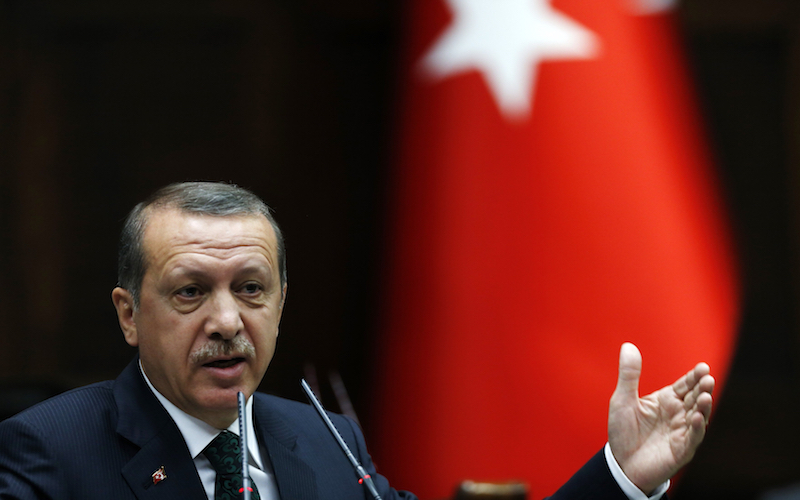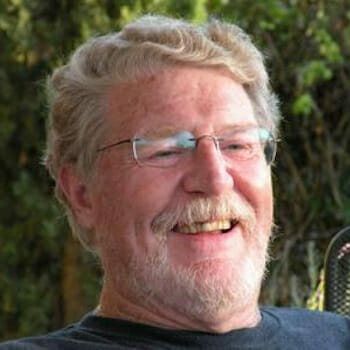
Turkey’s Election Turmoil
As Turkey gears up for one of the most important elections in its recent history, the country appears, as one analyst noted, to be coming apart at the “seams”:
- Longstanding tensions with the country’s Kurdish population have broken out into open war.
- A Kurdish-led left political party is under siege by rightwing nationalists and the terrorist organization, the Islamic Front.
- Independent journalists have been attacked by mobs led by leading members of the ruling Justice and Development Party (AKP) of Turkish President Recep Tayyip Erdogan.
- Erdogan, his family, and leading figures in the AKP have been entangled in several major corruption schemes.
- The economy has stalled, inflation is on the rise, unemployment is at a five year high, tourism is tanking, and the Turkish lira is plunging, driving up the national debt.
All Turkey lacks these days is a rain of frogs and rivers of blood, but there is still time before Nov. 1 election.
Some of these plagues are long standing, but most are the direct result of Erdogan’s determination to reverse the outcome of last June’s election that saw the AKP lose control of the parliament, and the President’s grand plan for an all-powerful executive—run by him—died aborning.
In the June 7 election, Erdogan’s AKP lost its absolute majority in the legislature. The defeat was mainly due to a breakthrough by the Kurdish-led, leftist, People’s Democratic Party (HDP) that took 13.1 percent of the vote and won 80 seats, seats that in the past usually went to the AKP.
Almost before the final tallies were announced, Erdogan moved to prevent the formation of a government and force another election. Key to this has been an all-out campaign to suppress the HDP and prevent the party from getting at least 10 percent of the vote, the required threshold for representation
And in true Old Testament fashion, he has unleashed the furies.
First, he ended negotiations and a two-year old ceasefire with the Kurdish Workers Party (PKK) and began bombing Kurds in Syria and Iraq. He also charged that the HDP was a front for the PKK and demanded that the HDP’s dynamic leader, Selahattin Demirtas, be charged with supporting terrorism. HDP offices have been targeted by rightwing nationalist mobs from the AKP and the extreme rightist National Action Party.
Several anti-Erdogan newspapers and magazines were also set upon, attacks that the government either ignored or belatedly condemned.
The kind of suicide bombings that plague much of the Middle East have made an appearance. Some 32 leftist Kurdish activists were killed July 20 in the border town of Suruc, and on Oct. 10 a peace demonstration in Ankara organized by the HDP was bombed, killing more than 100 people and wounding hundreds more.
While the culprit in both cases was likely the Islamic State, paranoia is running rampant these days. Turkish Prime Minster Ahmet Davutoglu blamed the PKK—extremely improbable, given that the rally was protesting the war against the Kurds—and HDP leader Demirtas blamed the government. Others charge it was the work of the National Action Party’s “Gray Wolves,” a shadowy death squad that killed thousands of Kurds and leftists in the 1980s and ‘90s.
Not only did the government remain silent for several days after the massacre, Turkish security forces broke up memorial demonstrations in Ankara and Istanbul.
A decade ago, Turkey was at peace with its neighbors, its economy was humming, democracy was flowering, the country’s coup-minded military relegated to the barracks, and the 40-year war with its Kurdish population appeared to be over. Turkey, with its efforts to find a peaceful solution to the nuclear crisis with Iran, had also become an international player.
Today, Turkey is engaged in an unpopular war in Syria, its economy is troubled, its people are polarized, its relationships with Egypt and Israel are hostile, the Kurdish peace is shattered, and democracy is under siege. It has alienated Russia, Iraq and Iran, and even failed to get re-elected to the UN Security Council.
What happened?
Much of it goes back to the man who has dominated Turkish politics these past 12 years, and who would like to run the country for another decade, Recep Tayyip Erdogan. He bears limited responsibility for some of this. For instance, the economy is bad, but so are most economies worldwide. But much of what has happened in Turkey—for good and bad—is in large part due to his creation of a moderate Islamic regime that curbed the power of the military and the secular elites who had dominated Turkish politics since the nation’s foundation in 1923.
Erdogan and his allies—allies he has since fallen out with—reined in a military that had carried out four coups since 1960. He also made peace with the Kurds, ending a war that took 40,000 lives and cost $1.2 trillion. A side benefit for that was that many rural and religious Kurds migrated into the AKP, giving it a significant edge over all other parties in the parliament.
But things began to go off the rails in 2010, when the Arab Spring took the Middle East by storm and Turkey made two fateful steps: backing insurgents trying to overthrow Bashar al-Assad in Syria, and supporting the Muslim Brotherhood in Egypt. The first step trapped Ankara in a quagmire, wrecking its relations with Russia, Iraq and Iran, and the second was a bad bet: the Egyptian military, bankrolled by Saudi Arabia, overthrew the Brotherhood in 2013.
It is all this sturm und drang that makes these elections so critical for the AKP, and Erdogan in particular. A failure to win an outright majority will be seen as a repudiation of the Kurdish war, Ankara’s Syria policy, and may resurrect the corruption changes that the AKP has managed to dodge so far. “For him, this is existential,” one former Turkish official told the Financial Times. “There is still accountability in this country and he knows it.”
This “existential” nature of the Nov. 1 vote is the reason why Erdogan has pulled out all the stops, but polls show that the outcome is likely to be much like last June’s election. The AKP may pick up a percentage point or two, but it will fall far short of the majority it requires to push through its constitutional changes and create an all-powerful presidency.
The polls also show that Erdogan’s major pre-election target, the HDP, may do slightly better this time around, in part because he has totally alienated the Kurdish community. The Kurds make up 20 percent of the population and about 17 to 18 percent of the voting population.
If the polls are correct, Turkey will have a divided government, and that will create its own dangers.
First, there are the President’s increasingly authoritarian stratagy.
Erdogan, for instance, says he is no longer bound by the constitution because he is the first directly elected president in Turkish history. He won that post with 52 percent of the vote in 2014. Presidents are normally appointed by the parliament and are supposed to be non-partisan. Abdurrahim Boynukalin, the leader of the AKP’s youth wing and a deputy in the parliament, said recently that, “Whatever the results of the election on November 1, we will make him [Erdogan] the leader.”
Second, the AKP may form an alliance with the ultra-rightwing National Action Party, which would almost certainly mean an escalation of the war against the Kurds and put into positions of power an organization that celebrates violence and is openly contemptuous of democracy. While the merger would still not give the AKP the 400 seat super majority it needs to amend the constitution, it would have a chilling effect on political activity.
There is also the possibility of a “grand coalition” government with the secular People’s Republican Party, the second largest in the parliament. But that would require sharing power, not one of Erdogan’s strong suits.
There are, however, strong counter-trends.
In spite of Erdogan’s flirtation with authoritarian rule, Turkey is still a democracy, and its military shows no interest in intervening in civil affairs. Indeed, there is some unrest in the military over the Kurdish war, and the government has been denounced at several military funerals. The military has also made it quite clear that they have no interest in getting involved in the Syrian civil war.
Erdogan calculated that re-igniting the Kurdish war would unite the country behind him, but it has not turned out that way, and his international allies are lukewarm about the whole endeavor. While saying that Turkey had the right to defend itself, The Europeans and the U.S. call for a “proportional” response, not the massive bombing Ankara has launched on Kurds in Northern Iraq and Syria.
Of course, the allies discomfort is a reflection of the fact that while the AKP government draws no distinction between the Islamic State (IS), the PKK, and the latter’s Syrian offshoot, the Kurdish Democratic Union, the allies consider the Kurds their most reliable and effective forces against the IS. The Turks recently complained to Russia and the U.S. about their arming of Syrian Kurds, a complaint that neither country is likely to pay much attention to.
The Syria war has been a disaster for Erdogan. Some 63 percent of Turks oppose the AKP’s Syria policy, and only 20 percent back overthrowing Assad. Over 65 percent oppose one of Erdogan’s fixations, the formation of a buffer zone inside Syria.
And, while in the past the AKP can say it delivered on the economic front that is a hard sell these days.
The next few weeks will be fraught with danger. The AKP and the ultra-nationalists will try to suppress the vote, particular in Istanbul and the Kurdish east and south. The PKK declared a ceasefire for the election, but the Turkish government has ignored it. Will Erdogan use the war as an excuse to cancel the election in the Kurdish regions?
Erdogan may even refuse to accept the results of the election if the AKP does poorly, and he has already demonstrated his willingness to use violence. His brutal crushing of the 2013 Gezi Park demonstrations is a case in point.
But Erdogan can no longer claim the support of a majority of the Turks, and what he does internally will be watched closely by the international community, focused as it is on the refugee crisis that the Syrian war has generated.
In less than two weeks, the Turks will vote in an election that will have major regional and international implications. Its outcome may decide whether the Middle East slides deeper into war and chaos, or begins to move in the direction that the Arab Spring originally envisioned.

